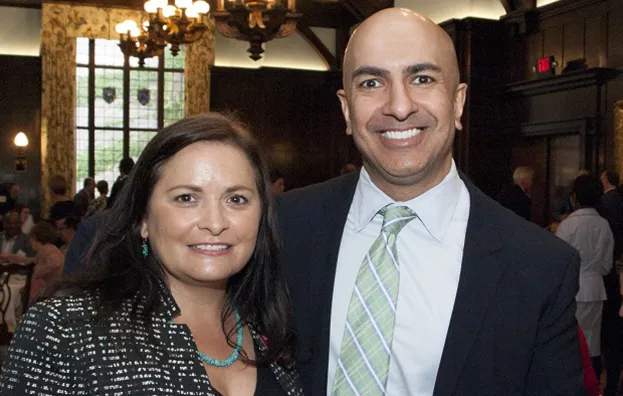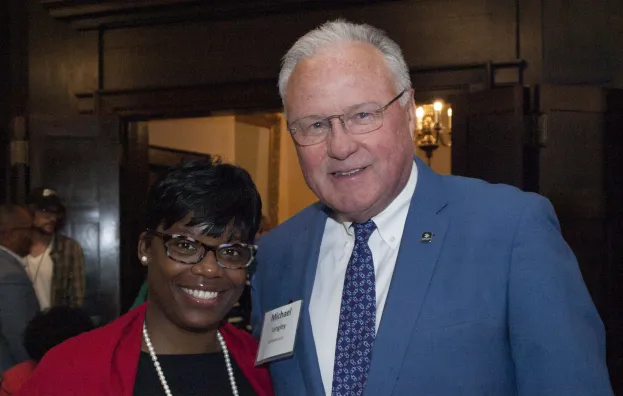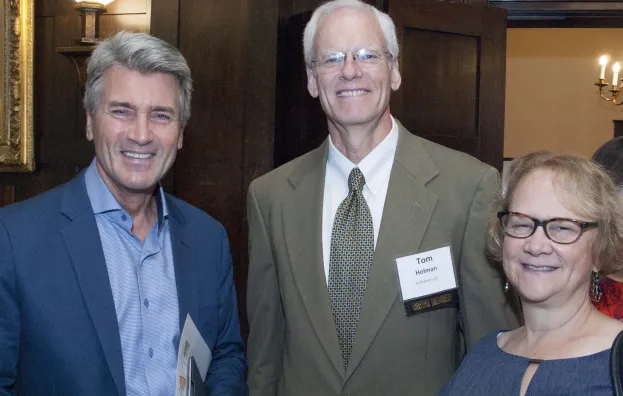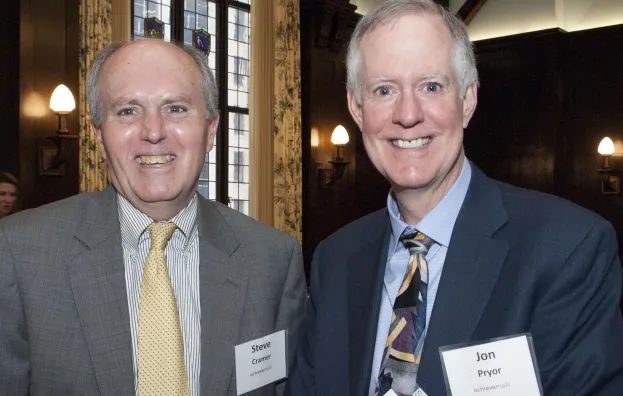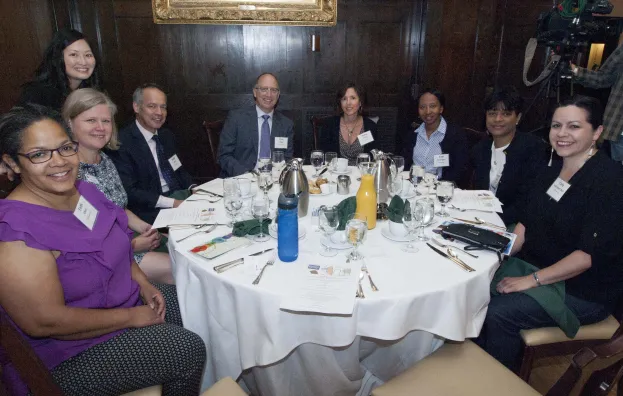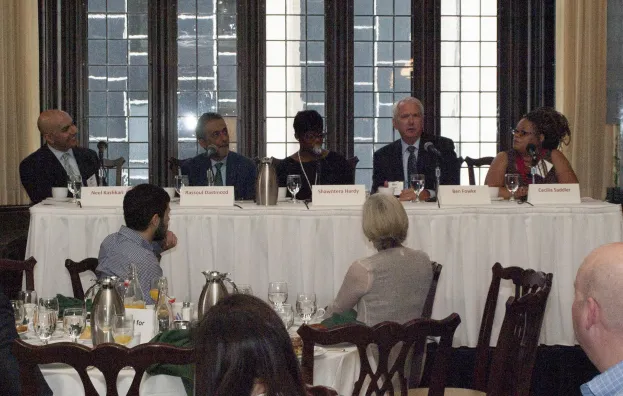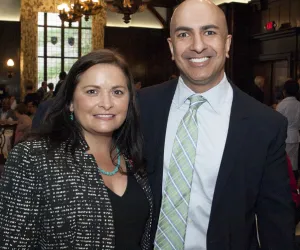Our region is facing two serious and intertwined economic challenges with critical long-term implications: a growing worker shortage, and one of the country’s largest equity gaps in employment, wages and education. While companies struggle to find skilled workers, many young people lack the resources and connections necessary to identify and secure high-demand, family-sustaining careers.
At our recent thought-leaders event, Bridging the Gap, local business, education and government leaders came together for a unique cross-sector conversation about what’s at stake for our economy and our young people if we fail to bridge the employment gap.
Leading the conversation was Neel Kashkari, the president of the Federal Reserve Bank of Minneapolis.
“We have to have uncomfortable conversations,” Kashkari explained, as he discussed the challenges he sees in our region and the complexity of the problem. He observed that we need evidence-based solutions to address the opportunity gaps and that we must strengthen connections between local businesses and educational institutions. He also said that occupational licensing creates artificial barriers to good-paying jobs.
After Kashkari’s opening remarks, a group of panelists had the opportunity to respond. The panelists included Dr. Rassoul Dastmozd, president of St. Paul College; Ben Fowke, chairman, president and CEO of Xcel Energy; Shawntera Hardy, Minnesota DEED commissioner; and Cecilia Saddler, deputy chief of academics, leadership and learning at Minneapolis Public Schools (MPS).
Addressing the role of education, Dr. Rassoul Dastmozd and Cecilia Saddler talked about the work that is going on in their institutions, as well as broader trends in secondary and post-secondary education.
“The role of education is not only to be relevant, but also to improve a person’s life in a meaningful way,” said Dastmozd. "We have moral obligation to teach the right skill set."
Saddler agreed and talked about the need to ensure that courses feel relevant to students. She discussed career pathways in schools as a way to help students to find connections between classwork and future careers.
Ben Fowke identified a gap between perceptions and reality in the workplace. He emphasized that youth need to understand that the technical trades offer good-paying jobs. He also talked about the role of businesses.
“For businesses to be successful, our communities need to be successful. We need to reach out to youth and inspire them, and we must step up and let youth experience the workplace in meaningful ways,” Fowke said.
When talking about supporting communities, Shawntera Hardy advised that “We have to really listen to those people we are trying to help. They need a seat at the table.” Hardy added that “communities of color and low-income communities have assets and we need to have an asset-based mindset as we address these challenges.”
You can watch the entire event on the Federal Reserve Bank of Minneapolis YouTube page and view media coverage from KSTP-TV.
Event Photos
